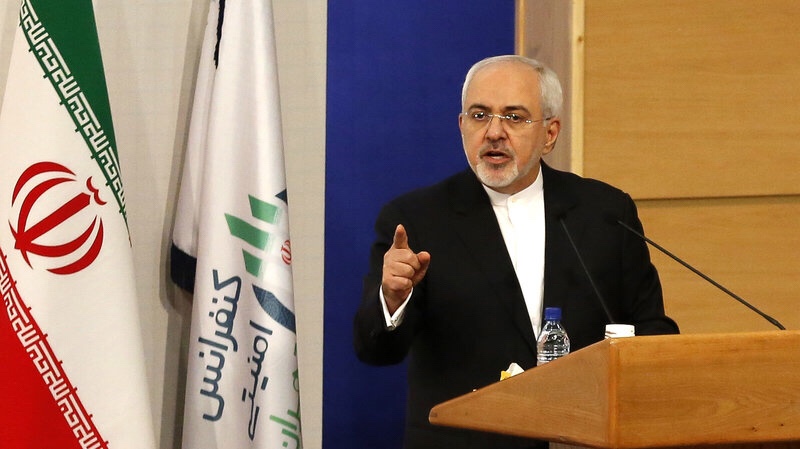 Iran's Revolutionary Guard Claims To Have Put Down Protests
Iran's Revolutionary Guard Claims To Have Put Down ProtestsScott Neuman
January 8, 20188:17 AM ET
Iranian Foreign Minister Mohammad Javad Zarif speaks during the Tehran Security Conference on Monday.
Atta Kenare/AFP/Getty Images
Iran's Revolutionary Guard is claiming to have quelled anti-government protests that began late last month and spread to several major cities, resulting in the deaths of at least 21 people.
The demonstrations began on Dec. 28 in the second-largest city of Mashad, followed a sharp rise in food prices against a backdrop of accelerating unemployment.
According to The Associated Press, authorities in Iran have claimed in the past few days that protests were waning.
Iran's semi-official ISNA news agency says hundreds of people, including about 90 university students, have been detained since the protests began.
Abbas Milani, director of Iranian Studies at Stanford University, recently wrote for NPR's Parallels blog, that Iran's regime is, "... strategically weak because it faces daunting challenges — from oil price changes and water shortages to a disgruntled, Internet-savvy, youthful population, led by increasingly assertive women, hampered by chronic double-digit inflation and unemployment, and angered by corruption, cronyism and the squandering of massive sums in proxy wars, particularly in Syria."
The Revolutionary Guard's claim to have quashed the demonstrations comes as Iran's foreign minister, Mohammad Javad Zarif, warned Iran's neighbors against fomenting internal unrest.
"Some countries tried to misuse the recent incidents," Zarif said without blaming any specific country, according to AP. "[No] country can create a secure environment for itself at the expense of creating insecurity among its neighbors," he said, according to the news agency.
Zarif's remarks followed a closed-door meeting on Sunday in which senior officials were briefed about the protests. His sentiments reflect those of Iran's Supreme leader Ali Khamenei, who said earlier this month that Tehran's "enemies" were responsible for the unrest.
Khamenei, writing on his official website, said those opposed to Iran were using "various means - including money, weapon, politics and intelligence apparatuses - to create problems for the Islamic system."
No comments:
Post a Comment